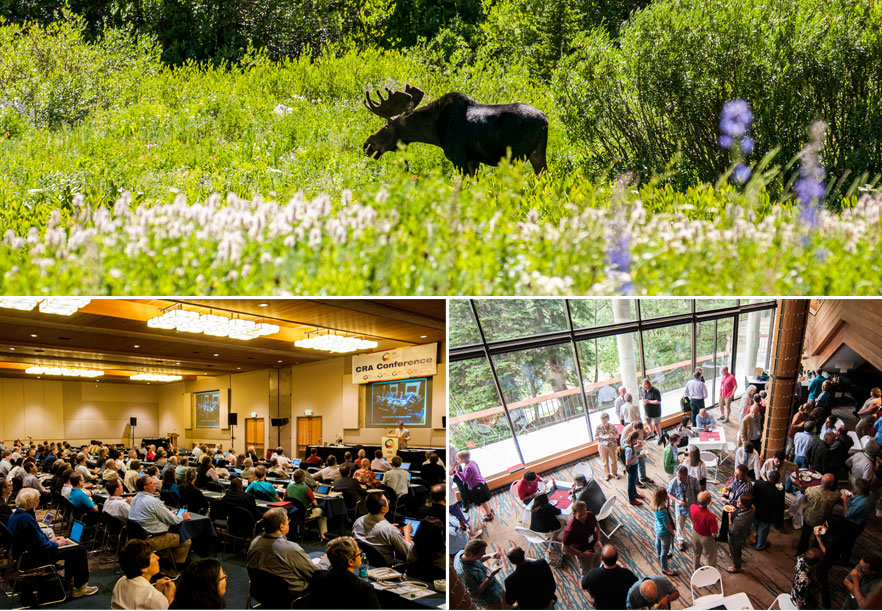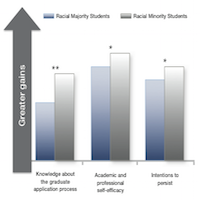2014 CRA Conference at Snowbird
The leadership of North American computing research community convened July 20-22, in Snowbird, UT. The biennial CRA Conference at Snowbird is our flagship conference where the leadership of the computing research community gathers to network and discuss common issues concerning the future of the field.
Outstanding speakers and panels addressed issues at the core of CRA’s mission, from future research challenges, to growing the research pipeline, to major issues of policy and government.
- Computing and the Human Experience:The opening plenary session was an inspiring session by Grady Booch, IBM Research. In his plenary session, he examined the story of computing as it has unfolded across time, ending with an exploration of where it might lead us and how we might ourselves be more intentional in directing it.
- A Policy Wonk’s Plea for More and Better Policy Research and Engagement from Computer Scientists: Peter Swire, Georgia Tech, a gave a talk offering his reasons why computer scientists should produce more explicitly policy-oriented research and become more involved personally in the policy process. He also shared ways that technologists can successfully navigate the unfamiliar culture and processes of political and policy debates. Slides from the presentation can be found here.
- Quantum Computing: Transforming the Digital Age:Krysta Svore, Microsoft Research, showcased recent advances in quantum computing. Quantum devices have also significantly advanced such that components of a scalable quantum computer have been demonstrated in a variety of quantum systems. In her talk, she revealed some of the mysteries of this disruptive computational paradigm. She demonstrated recent advances in quantum algorithms for real-world applications and in scalable, fault-tolerant devices.Slides from the presentation can be found here.
- Broadening the Computing Research Community:Maria Klawe, Harvey Mudd, encouraged increasing diversity in the computing research community. While our discipline does well in encouraging members of underrepresented groups to go on to graduate programs, we have been less successful in attracting members of these groups into undergraduate programs. This talk discussed successful strategies for significantly increasing the number of women and students of color majoring in computer science.Slides from the presentation can be found here.
- Making a Federal Case for Computing:CRA’s own Peter Harsha explained the new landscape for science policy and discuss what CRA and CRA’s partners in the science advocacy community are doing to navigate in it. Slides from the presentation can be found
The Computing Community Consortium (CCC) led a variety of sessions throughout the conference. Excitement was high for the programs being put on by the CCC:
- Computing Visions 2025: The Visions 2025 initiative was created to inspire the computing community to envision future trends and opportunities in computing research. A panel comprised of members from the Visions 2025 steering committee discussed the two workshops which have already happened and the future of this initiative. Slides from the presentation can be found here.
- Computing Research Futures: Computing research continues to be at the forefront of innovation, impacting society in ways never before imagined. Michael Franklin, UC Berkeley, began the evening talking about where the field of data science is going. Maja Mataric, University of Southern California, then spoke about socially assistive technologies.
- Refining the Computer Science Postdoc Experience: The number of postdoc appointments in computer science has risen dramatically in the last ten years. There are concerns that postdocs be properly supported and mentored as they start their research careers. This panel presented results from the CCC CIFellows postdoc program and outlined efforts underway to refine and measure best practices for hosting postdocs and for supporting their career development. Slides from the presentation can be found here
New to the conference this year, were town hall discussion sessions that delved into developing a consistent timeline for graduate student acceptance notifications and the growing enrollments in computing courses. On Monday afternoon, attendees enjoyed a break from sessions to explore the natural beauty of the Snowbird location through guided hikes. Several hikers were lucky enough to see moose! Mark your calendars for the 22st biennial conference, which will take place in July 17-19, 2016, in the same beautiful location.
The conference agenda is posted online and contains links to presenter’s slides.










